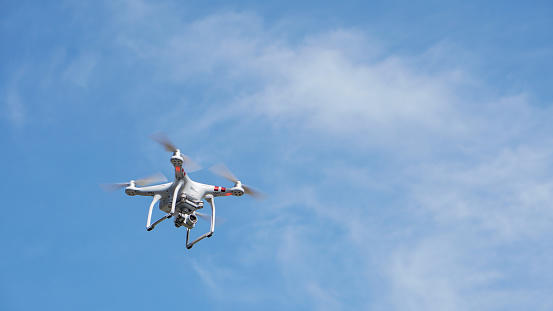In Minnesota, legislation that would limit police drone use has received bipartisan support at the state Capitol so far, as reported by Minnesota Public Radio.
The bill, HF 1236, has been introduced in both the House and the Senate. If the bill passes, it would require investigators to get a search warrant before they could use a drone to monitor someone. The only exceptions to that would be emergencies, like a missing person, natural disasters, or “terrorism-related incidents.”
“We’re trying to limit the investigation of innocent people with technology where it’s not necessarily warranted,” Rep. John Lesch, DFL-St. Paul, who authored the House version of the bill, told MPR. “I think it’s Americans’ appreciation of our privacy rights that is really paramount and [that’s] why we’re pushing the legislation.”
Law enforcement use of drones has seen regulation in other states, so Minnesota wouldn’t be the first. In Maine, for example, police are required to have a warrant when using a drone for criminal investigations.
In addition to requiring a warrant, Lesch’s bill is taking data into account. He wants to make the data that drones gather private, and agencies have to delete it within 24 hours. According to MPR, Lesch’s concern is that the data could be used to target innocent people otherwise caught in the drone’s surveillance.
Ultimately, Lesch wants to have drone regulations in place before facial recognition becomes a concern.
“Facial recognition technology was utterly useless except in very specific circumstances 10 years ago,” Lesch told MPR. “That has changed drastically in the last 10 years, so because we don’t know how they could be used in five years, we have an obligation to get ahead of that now.”
Although the bill would still allow police to use drones, these regulations may help limit some of the effects of surveillance. Drones specifically have been noted for offering newly accessible aerial surveillance.
“Reasonable limits on law enforcement drone use is an excellent way to begin setting reasonable limits on all forms of aerial surveillance,” the Project On Government Oversight wrote, “but it is also just the first step in addressing larger civil liberties issues looming above.”
On Wednesday, the bill will have its first hearing at a meeting of the House Judiciary Finance and Civil Law Division.

